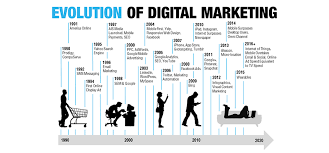In the rapidly evolving landscape of digital marketing, remarketing strategies have emerged as a powerful tool for businesses to engage with potential customers who have shown interest but haven’t converted. Initially, remarketing primarily involved displaying ads to users who had visited a website but left without completing a desired action, like making a purchase. However, as technology and consumer behavior have evolved, so too have remarketing strategies.
1. Enhanced Targeting and Personalization: Modern remarketing strategies leverage sophisticated targeting algorithms and data analytics to deliver highly personalized experiences. By analyzing user behavior across multiple touchpoints—such as websites, mobile apps, and social media platforms—marketers can create tailored ad campaigns that resonate with individual preferences and browsing history. This personalization not only increases the likelihood of conversion but also enhances user satisfaction by presenting relevant content.
2. Multi-channel Approach: Today’s consumers interact with brands through various channels, from social media platforms to email newsletters and search engines. Remarketing has adapted to this multi-channel reality by integrating across different platforms. This approach ensures consistent messaging and maximizes visibility, keeping the brand top-of-mind throughout the customer journey.
3. Dynamic Remarketing: One of the most significant advancements in remarketing is the adoption of dynamic ads. These ads automatically adjust content based on the user’s past interactions, displaying products or services that align with their interests. Dynamic remarketing not only saves time by eliminating the need for manual ad creation but also improves relevance, leading to higher engagement and conversion rates.

4. Emphasis on User Experience: Beyond simply displaying ads, modern remarketing strategies prioritize enhancing the overall user experience. This includes minimizing ad fatigue by controlling ad frequency, ensuring seamless integration with the website or app interface, and respecting user privacy preferences.
5. Future Trends: Looking ahead, the evolution of artificial intelligence and machine learning is set to further revolutionize remarketing strategies. Predictive analytics will enable marketers to anticipate user behavior more accurately, while AI-driven automation will streamline campaign management and optimization.
In conclusion, remarketing strategies have evolved from basic ad retargeting to sophisticated, personalized campaigns that span multiple channels and prioritize user experience. By leveraging technology and data insights, businesses can not only reconnect with potential customers but also build lasting relationships based on relevance and value.
 Clear My Certification All Certification Exam Answers
Clear My Certification All Certification Exam Answers
